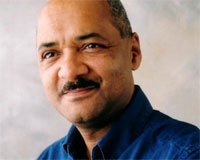Agencies criticise film exposé of Muslim missions
by - 25th October 2007
 British mission agencies who were involved in the Dispatches film “Unholy War”, broadcast on Channel 4 on Monday, fear negative repercussions, after the film bracketed them with what they describe as “unaccountable” American evangelists.
British mission agencies who were involved in the Dispatches film “Unholy War”, broadcast on Channel 4 on Monday, fear negative repercussions, after the film bracketed them with what they describe as “unaccountable” American evangelists.
The film investigated the plight of former Muslims in Britain who convert to Christianity, and reported the intimidation that many of them face from Muslims. While they are pleased that Islamic apostasy laws have been exposed, the agencies are dismayed at the tactics and tone that the film took regarding long-standing Christian work in inner cities.
Steve Bell, a team leader from Urban Vision, who was interviewed for more than two hours for the film, said this week: “They have pulled us into the same category as that insensitive, brash form of evangelism, when we have a different story to tell.”
Urban Vision is the UK wing of Interserve, a charity founded in 1852 by Lady Kinnaird. As the Bible and Medical Missionary Fellowship, it built hospitals and schools in India. Yet it was portrayed, to sinister background music, as a “covert group” that “targets” vulnerable Muslims.
Mr Bell said on Tuesday: “The film could potentially cause people in government to push for restrictions on interfaith mission because what they saw last night suggested that this is fomenting social unrest, and, as the reporter put it, ‘creating a time-bomb’.” The report suggested that “an explosion” was waiting to happen, caused by Christian proselytism.
The programme filmed the Revd Jay Smith, a Brethren in Christ evangelist who leads a Muslim outreach at Speakers’ Corner. He has no formal church links in the UK, but runs evangelism training courses at All Souls’, Langham Place, and elsewhere. The film also accused another US mission group, the Caleb Project, of “targeting” vulnerable women and children in Bradford.
Mr Smith said this week that his work was generously financed by British as well as American Christians. “The Establishment missiologists don’t like us because they always use the eirenic method. They’re afraid of directly confronting these aggressive Muslims. Why? We challenge the radicals using their own methodology. Someone has to do it.”
Mr Bell said: “The problem is a lack of sensitivity to the way British Christians do things. In an overseas situation, we would serve the work of local Christians, and respect their decision about an approach. They [the US evangelists] tend to ignore the British Church.”
Other church leaders were critical of the moral equivalence that the programme seemed to imply between Christian evangelism and Muslim religious intimidation, which its perpetrators see as sanctioned by Islam.
The Revd Chris Sugden, the Executive Secretary of Anglican Mainstream, said: “The notion that Christians might bring the love and comfort of God to people who have been bruised and battered by life is being attacked [by some in the media], who clearly believe that we should all be autonomous self-sufficient achievers.”
The Dispatches reporter, Antony Barnett, who is from a Jewish background, denied that there had been any pressure put on him to balance Christian and Muslim sides. He said, however, that “there was pressure to make the Caleb Project much more significant — which we decided against. It was put in out of journalistic curiosity.” He said that he had no idea what practical caring work missionaries did.
This story appeared in the Church Times on 21 September 2007.
- Log in to post comments
